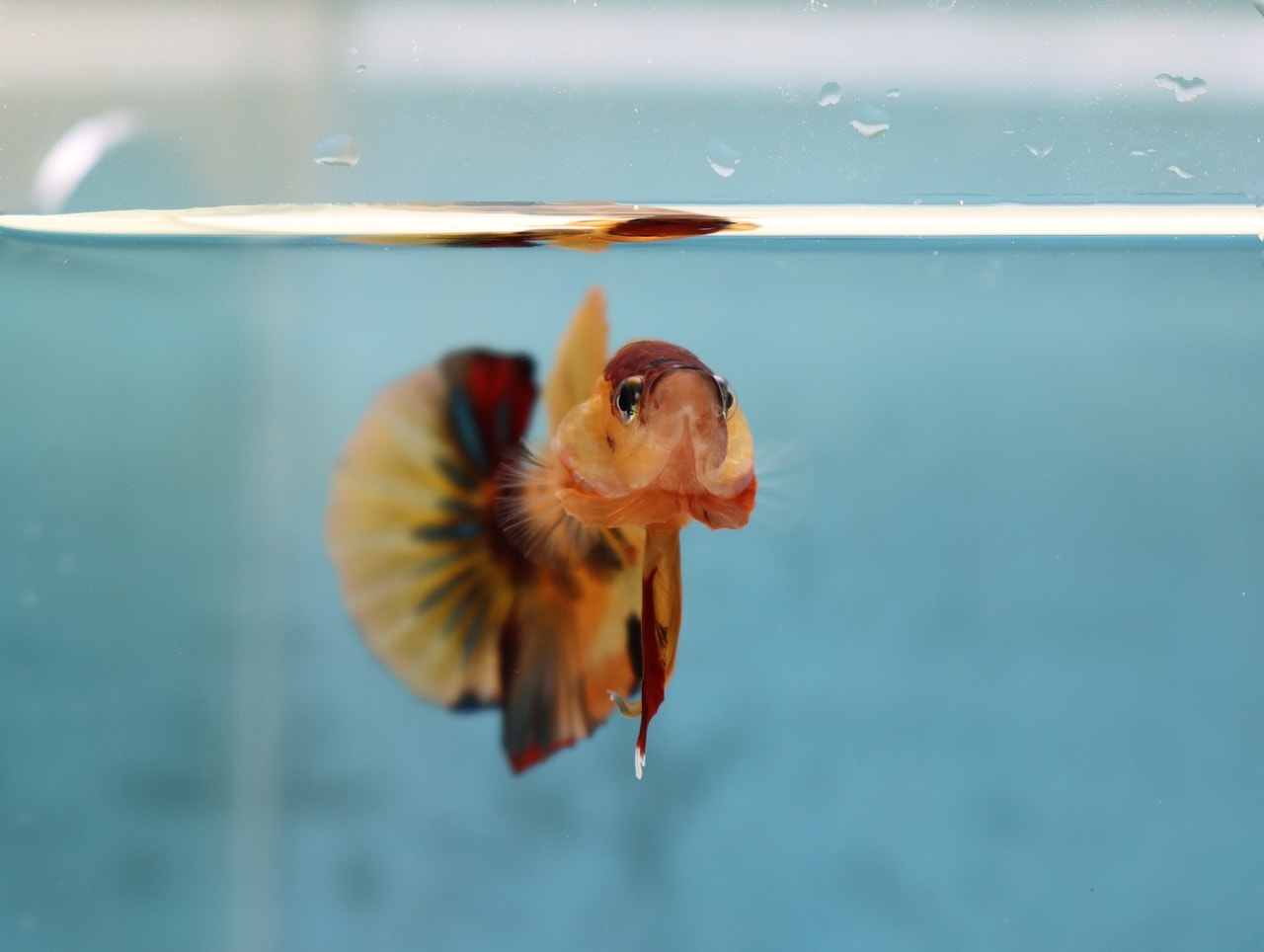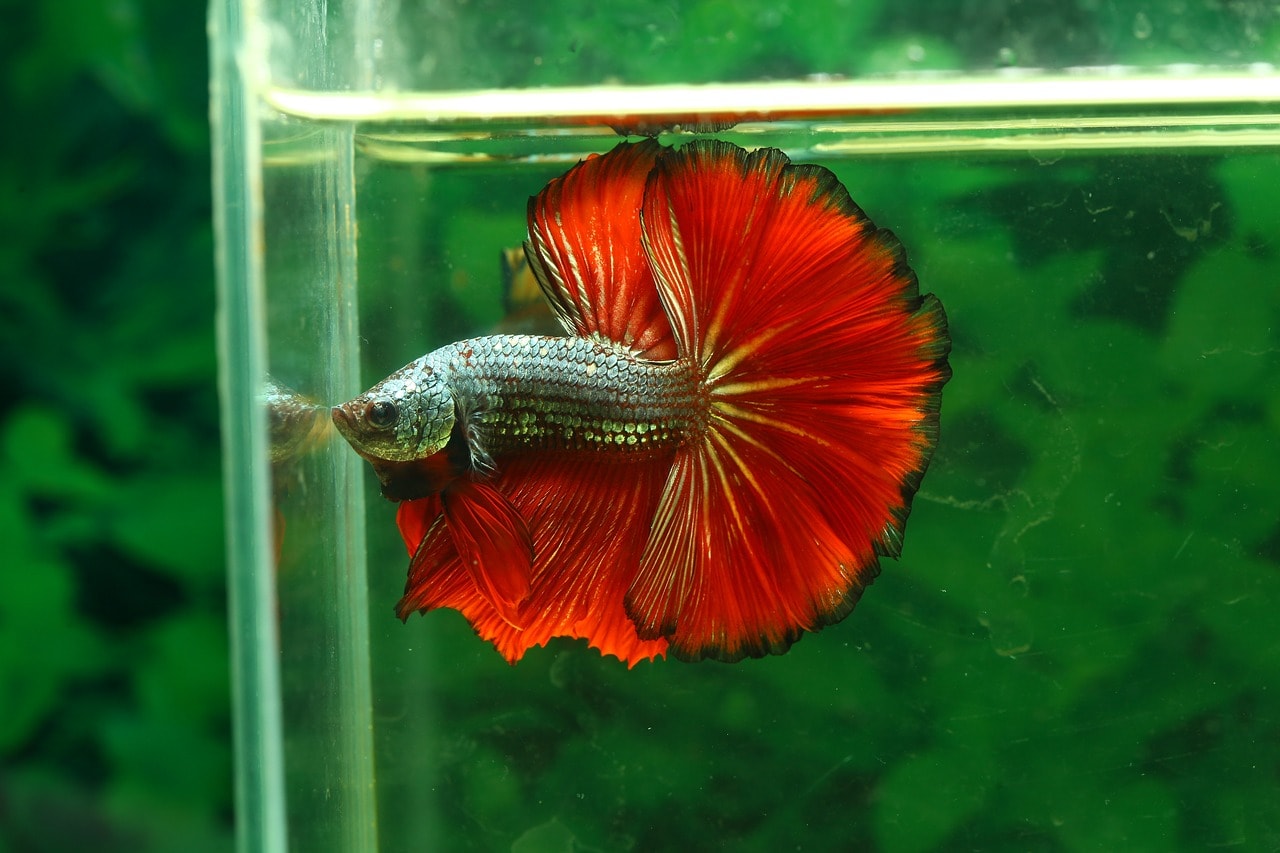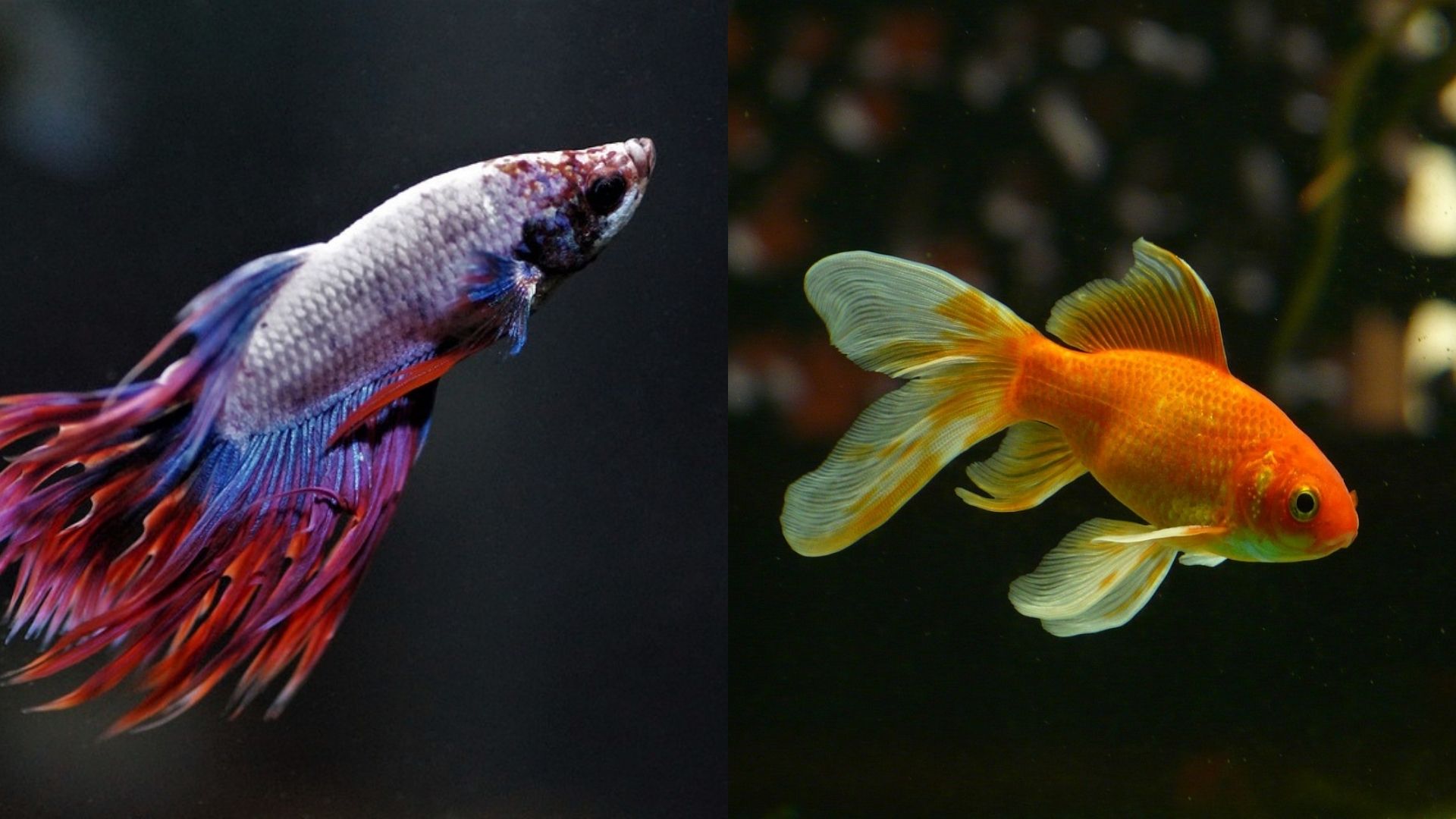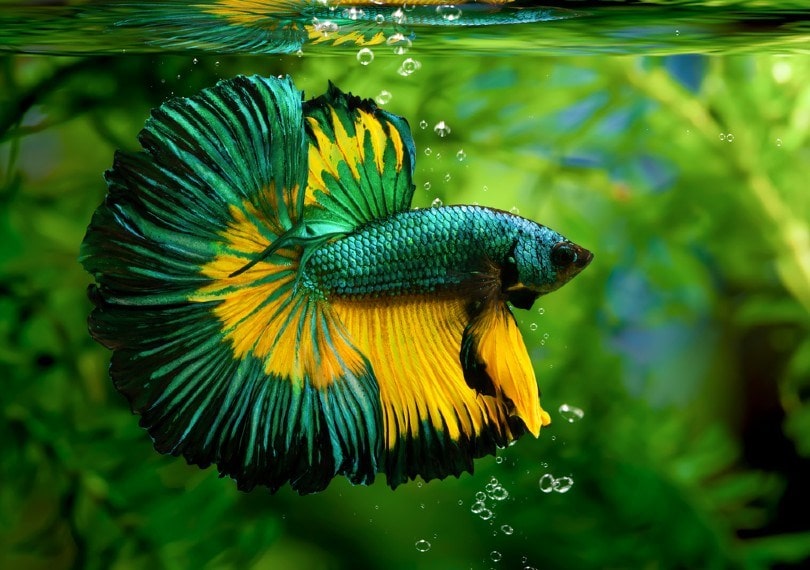
Part of being a responsible betta fish owner is ensuring that their water quality is maintained. Although bettas are not very messy fish, they still require good water quality to live in. This means that as a betta fish owner, it’s up to you to change the water and keep the tank filtered properly.
You may have heard that betta fish water needs to be cleaned every couple of days. This is not only tedious for you but can actually be harmful to your betta fish. If your betta fish is in an appropriate tank setup that has been cycled, changing your betta water is a fairly simple process.
You generally only need to change betta fish water on a weekly or bi-monthly basis depending on several factors we will discuss in this article.
Should You Change Your Betta Fish Water?
Yes, you should be changing your betta fish’s water when necessary. Betta fish kept in tanks and aquariums are contained in an environment where their waste products can quickly build up. This can lead to poor water quality, which is not good for any species of fish.
Bettas are constantly pooping in the water, and any food you add can start to foul the water. In the wild, these waste products would be diluted in larger bodies of water than in an aquarium. Their wild habitat’s water is also being replenished by rainfall and flooding. However, in an aquarium, this does not happen. This makes it our job to change our betta fish’s water and ensure that it is kept fresh and clean.
Poor water quality is detrimental to betta fish and may even lead to diseases or ammonia poisoning which can kill your betta. By doing water changes to your betta fish’s tank, you are helping to remove a proportion of the polluted water and replenish it with fresh water.
Even filtered betta fish tanks need partial water changes since filters are not a substitute for water changes.

How Often and How Much Water Should You Change?
There are several factors to consider when determining how often you should change your betta fish’s water. This includes their tank size, filter type, tank mates, and whether or not their tank has been cycled.
A betta fish in a small 3-gallon tank (minimum 5-gallons is recommended) is going to need more frequent water changes than a betta fish in a 10-gallon tank with an effective filter. Alternatively, a betta fish kept in a community aquarium with other fish and invertebrates will need more frequent water changes. Betta fish in general aren’t as messy as other popular fish like goldfish, so their tank will take longer to foul.
Therefore, you probably need to do fewer water changes on your betta’s tank. This is one of the reasons bettas are considered beginner-friendly and low-maintenance pets.
You ideally want to change out your betta fish’s water every week if they are kept in a tank under 10 gallons in size. However, you should never completely remove all of the water. This can shock your betta fish since they have adjusted to the water parameters in their aquarium and completely changing the water is stressful for them. Instead, you want to do partial water changes.
This is usually a 10% to 25% water change every week or when necessary. Only a small portion of the water should be removed and replaced from their tank at a time to avoid shocking your betta fish. You want to avoid doing large water changes regularly, and no more than 50% at once.
How Do You Know When Your Betta Fish’s Water Needs to Be Changed?
You can test whether your betta fish’s water needs to be changed by using a water testing kit. The test will give you a reading on the amount of ammonia, nitrites, and nitrates in the water along with pH. The safest level of ammonia and nitrites for betta fish is 0 ppm. Ammonia and nitrite are toxic to betta fish and even the smallest traces can kill them.
Nitrate is the less toxic byproduct of ammonia and nitrites being converted by beneficial bacteria in the tank. Nitrate is usually safe for betta fish up to 20 ppm, and it can only be removed or diluted by doing partial water changes. When the nitrates start to build up, betta fish can experience nitrate poisoning. This is detrimental to bettas, and it can take them a while to recover again.
Unfortunately, some betta fish don’t survive nitrate poisoning, which a partial water change could help prevent.
Another way you could determine whether their water needs changing is by looking for visible gunk and poop buildup. If you can see that their tank has visible poop, leftover food, and debris, then a partial water change is necessary. These pollutants will eventually cause the water quality to become poor, leading to an ammonia spike.
Many people who don’t have access to water testing chemicals will stick to a tank cleaning regimen and do it once every one to two weeks.

Do Betta Fish Tanks Need to Be Cleaned Often?
Betta fish should not be kept in a bowl, cup or other vessel that is not designed to house fish. Unless your betta fish’s tank is over 5 gallons in size, it is not going to be a suitable long-term home for them. Cleaning their bowl is going to be a lot of daily work, especially if it is not filtered.
Keeping betta fish in bowls without a filter is an outdated practice that fish keepers now deem cruel. Changing their bowls usually involved placing the betta in a separate container and removing all of the current water. The bowl would then be filled up again and the betta fish placed back inside. However, this is not suitable for betta fish and can even be harmful to them. They should be kept in a fish tank with filtration and not a glass bowl.
All tanks do need to be cleaned and this is usually done at the water changes. You can use a special sponge to wipe down the inside of the tank walls to remove algae and rinse their ornaments too.
Betta fish require a spacious tank, ideally at least 5 gallons in size according to veterinarians Dr. Krista Keller and Dr. Jessie Sanders. Their tank should contain both a filter and a heater because bettas are tropical fish.
Upgrading your betta fish to a suitable home not only allows your betta fish to thrive but also makes maintaining their aquarium much easier for you. No amount of water changes and scrubbing will make a bowl suitable for your betta long term. Furthermore, completely changing their bowl’s water is going to be highly stressful for them. Stress is not good for any pet fish and may make them susceptible to illness and poor health.
How Do You Change Betta Fish Water?
Once you have let the tank undergo the nitrogen cycle and equipped it with a suitable filtration system, water changes can be a breeze. You can use a gravel vacuum or siphon to suction up a small portion of the water into a bucket, cleaning the substrate as you go. The old water can be disposed of down a sink or in your garden.
You can then use the bucket to refill the tank. If you are using tap water, you will need to add a dechlorinator during each water change. Tap water is full of chlorine, chloramines, and heavy metals which can be toxic to betta fish. A de-chlorinator will help neutralize those chemicals and make the water safe for your betta. It should be added directly to the new water or after it has been added to the tank.
A tip we have to ensure most of the poop and debris is removed from your betta’s tank is to gravel vacuum the substrate. Lots of pollutants (poop, uneaten food, decaying plants) can get trapped there which can start fouling your betta’s water. They aren’t always removed by the filter and contribute to poor water quality. Suctioning out these pollutants from the substrate during a water change helps to keep your betta’s water clean and fresh for longer.

In Conclusion
Good water quality is essential for a betta fish’s overall health and longevity. By doing weekly or bi-monthly partial water changes to their tank, you are ensuring that their water quality is maintained. We recommend discussing the specifics of your tank set up with your local aquatics or aquarium specialist.
Fortunately, their water is easy to change and maintain thanks to their small size and low bioload. Bettas might not be messy fish, but their tank’s water still needs to be changed regularly to prevent health problems caused by poor water quality.
Featured Image Credit: Pixabay









